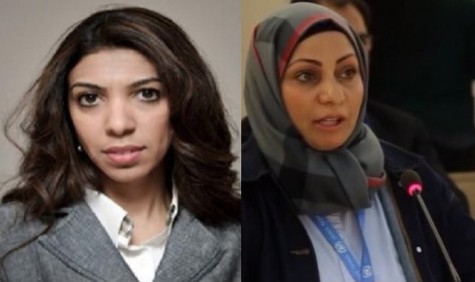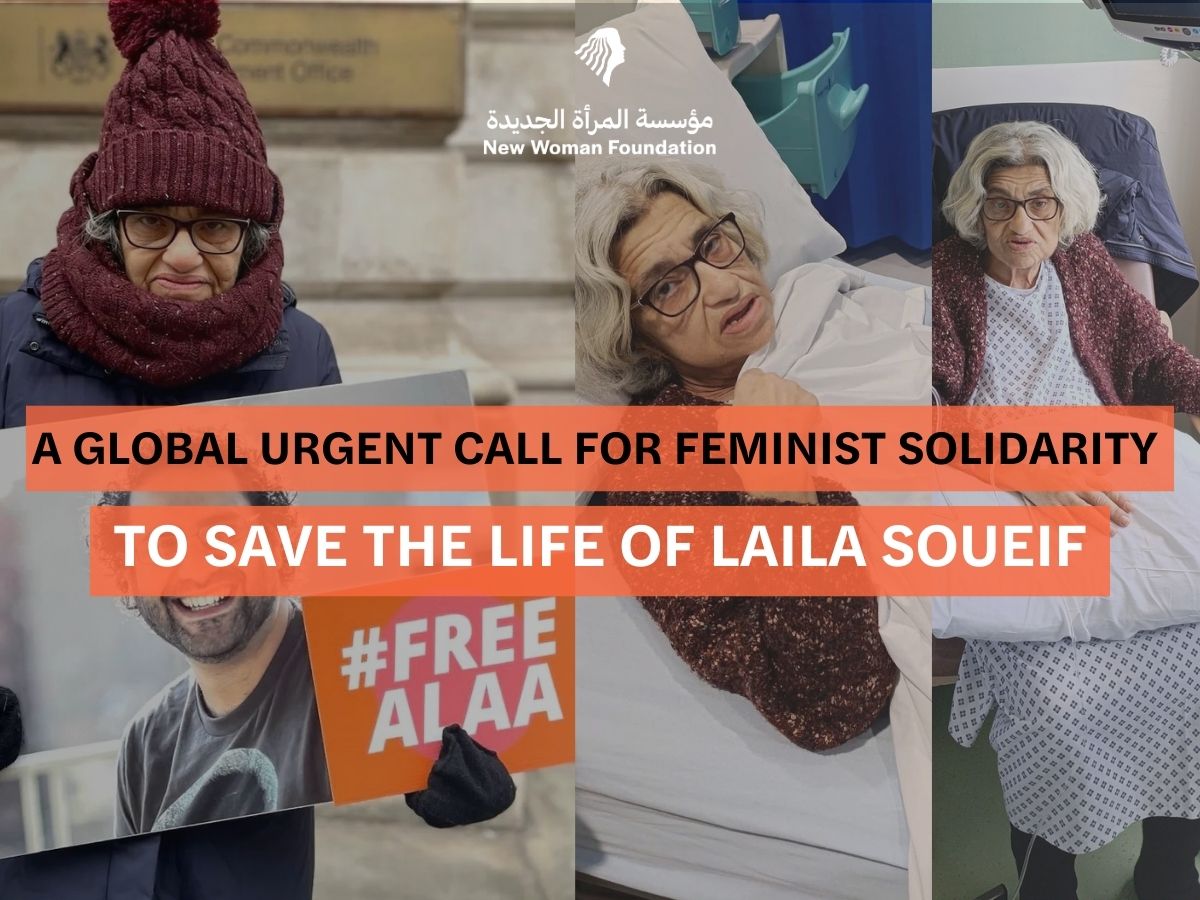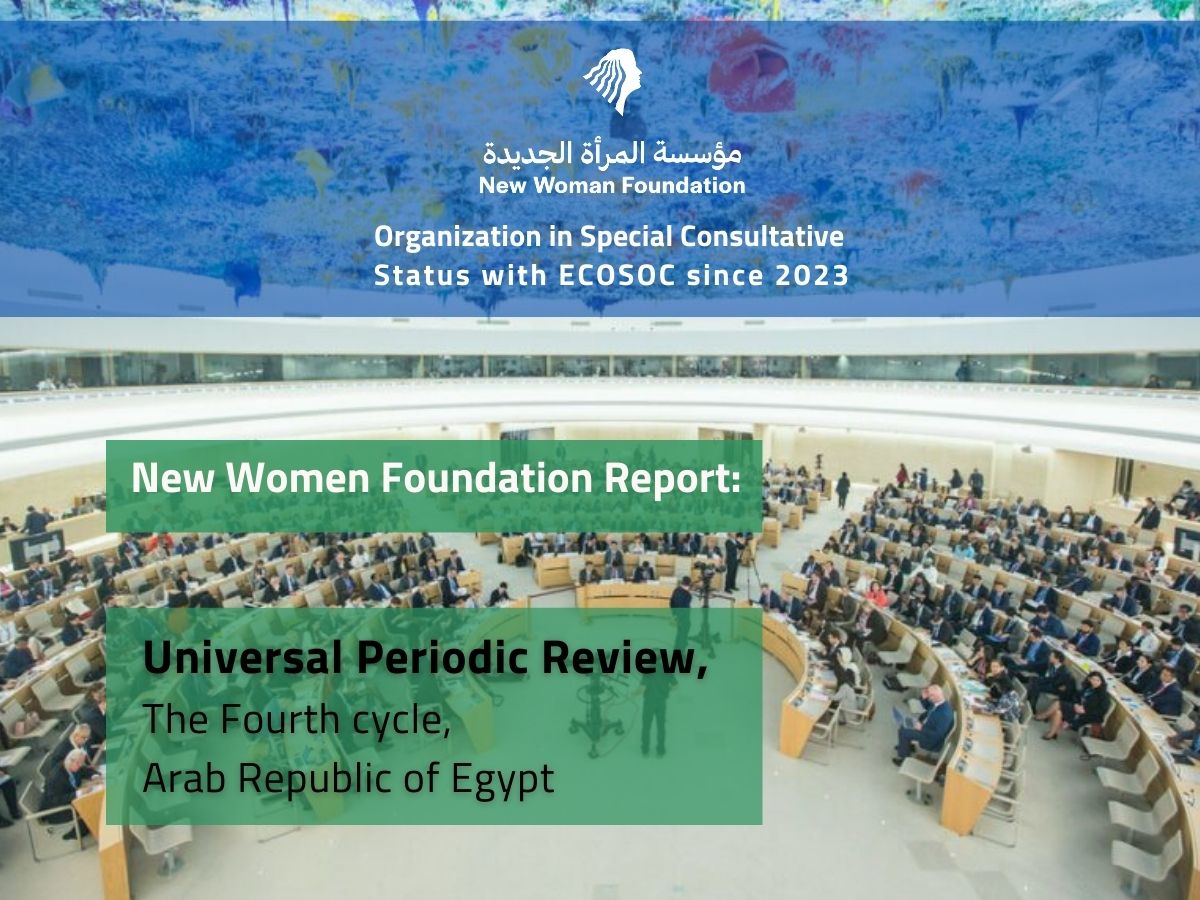- Contact Us
- 0020233382706
- nwrc@nwrcegypt.org
Bahrain: Women human rights defenders who are tortured in Bahrain will not receive justice

Saudi Arabia: State Schools to Allow Girls’ Sports
July 15, 2017
Urgent Alert: Jordan close to ending legal exemptions for rapists
August 6, 2017Women human rights defenders in Bahrain who have been tortured in Bahrain have been subjected to further persecution to stop them from working. In two separate cases, Ebtisam Al-Saegh remains in prison for her human rights activities and Nazeeha Saeed is unable to work as a journalist. They have received no justice.
Ebtisam Al-Saegh, the monitoring and documentation officer of Salam for Democracy and Human Rights, has been held in solitary confinement in Isa Town Women’s Prison since her arrest on 03 July 2017. On 18 July, the Public Prosecution ordered Al-Saegh to be incarcerated for six months pending investigation under the anti-terrorism law. She has been subjected to lengthy interrogation and it is feared that she has been badly ill-treated. She is being held away from other inmates to prevent them from hearing her screams, and Salam reports that Al-Saegh has been on hunger strike for the past week in protest at her treatment.
Human rights defender Nabeel Rajab, President of the Bahrain Center for Human Rights (BCHR) and Founding Director of the Gulf Centre for Human Rights (GCHR), reported in a phone call to his family that he had seen Al-Saegh in a wheelchair in Al-Qalaa Military hospital, where he is receiving treatment for illness while serving a two-year sentence. According to twitter posts on 16 July, her situation concerned him greatly and he thought from her appearance that she’d been in a car accident, raising serious concerns for her safety and well-being.
On 18 July, a group of United Nations experts expressed “deep concern at the alleged arbitrary detention of Bahraini human rights defender Ebtisam Alsaegh amid reports she has been tortured and sexually abused and is now on hunger strike.”
On 03 July 2017, Al-Saeegh was arrested during a raid on her home for the second time in less than two months. Just before midnight, five cars and a minivan arrived at the home of Al-Saeegh and a large group of armed security agents, reportedly belonging to the National Security Agency (NSA), raided her home without a warrant.
The incident comes just weeks after Al-Saegh suffered torture and abuse at the hands of the NSA. On 27 May 2017, she was summoned to Muharraq police station for questioning about her human rights activities. She was immediately arrested and then tortured and sexually abused by members of the NSA. The security officers also threatened to murder her and her children. She was released seven hours later but had to go directly to hospital suffering from a “severe nervous breakdown.”
According to Sayed Yousif Al-Muhafdah, Vice-President of Salam and a Board member of BCHR, Al-Saegh was subjected to “torture and severe beatings on the head. She was also subjected to psychological torture through a wave of insults and “threats to target her family members if the human rights work was not stopped,” in order to force her to publish on her Twitter account a declaration that she would cease her human rights work and resign from Salam.
During the interrogation in May, she was asked about the work of activists inside and outside Bahrain, and about human rights work in Geneva during the sessions of the UN Human Rights Council. For further information see GCHR appeal dated 31 May 2017.
The security authorities have recently arrested and tortured many human rights defenders and then released them after forcing them to stop their human rights activities. Other people who were interrogated at Muharraq police station subsequently renounced their work on twitter and stopped tweeting. Only Al-Saegh strongly condemned these illegal practices, describing them on Twitter as a “crime against humanity.” On 26 June, the International Day in Support of Victims of Torture, El-Saegh tweeted: “I was tortured because I am human rights defender. I demand Punish[ment] to those who tortured me.”
Journalist Nazeeha Saeed, former correspondent for France 24 and Radio Monte Carlo Doualiya, reported being tortured in 2011. She is no longer able to work as a journalist in Bahrain. On 18 July 2017, an appeal court in Manama upheld the sentence imposed by the second lower court on 24 May for “working without a license” against Saeed. She was fined 1,000 Bahraini dinars (approx. USD$2650). Her lawyer will appeal the sentence at the Court of Cassation if the court agrees to hear the case.
On 17 July 2016, Saeed, was summoned for interrogation and was charged with unlawfully working for the international media under Article 88 of Law 47/2002. Saeed had applied for renewal of her license but her application was rejected without any basis. It was the first time in 12 years that her accreditation was not renewed. She was also placed under a travel ban.
Saeed was arrested and tortured in May 2011 after covering protests. She was repeatedly beaten and subjected to electro-shocks 10 times while in police detention. One of the policewomen responsible was brought to trial but acquitted in October 2012. In November 2015, authorities decided against charging other identified officers because of “insufficient” evidence.
GCHR expresses serious concern at the arrest and detention of Ebtisam Al-Saegh particularly due to the torture she suffered at the hands of the NSA in May. GCHR is also concerned that journalist Nazeeha Saeed is unable to work as a journalist in Bahrain due to her human rights reporting. GCHR expresses further concern at the on-going targeting of Bahraini human rights defenders solely as a direct result of their peaceful and legitimate human rights activities.
GCHR urges the authorities in Bahrain to:
- Immediately and unconditionally release Ebtisam Al-Saegh, and ensure that she has contact with her family;
- Overturn the sentence of Nazeeha Saeed for working without a license, and provide her the requested press accreditation; and
- Guarantee that Ebtisam Al-Saegh, Nazeeha Saeed and all human rights defenders in Bahrain are able to carry out their legitimate human rights activities without fear of reprisals and free of all restrictions including judicial harassment.
GCHR respectfully reminds you that the United Nations Declaration on the Right and Responsibility of Individuals, Groups and Organs of Society to Promote and Protect Universally Recognized Human Rights and Fundamental Freedoms, adopted by consensus by the UN General Assembly on 9 December 1998, recognises the legitimacy of the activities of human rights defenders, their right to freedom of association and to carry out their activities without fear of reprisals. We would particularly draw your attention to Article 6 (b and c): “Everyone has the right, individually and in association with others: (b) As provided for in human rights and other applicable international instruments, freely to publish, impart or disseminate to others views, information and knowledge on all human rights and fundamental freedoms; (c) To study, discuss, form and hold opinions on the observance, both in law and in practice, of all human rights and fundamental freedoms and, through these and other appropriate means, to draw public attention to those matters”, and to Article 12 (1 and 2): “(1) Everyone has the right, individually and in association with others, to participate in peaceful activities against violations of human rights and fundamental freedoms. (2) The State shall take all necessary measures to ensure the protection by the competent authorities of everyone, individually and in association with others, against any violence, threats, retaliation, de facto or de jure adverse discrimination, pressure or any other arbitrary action as a consequence of his or her legitimate exercise of the rights referred to in the present Declaration.”
Gulf Center




